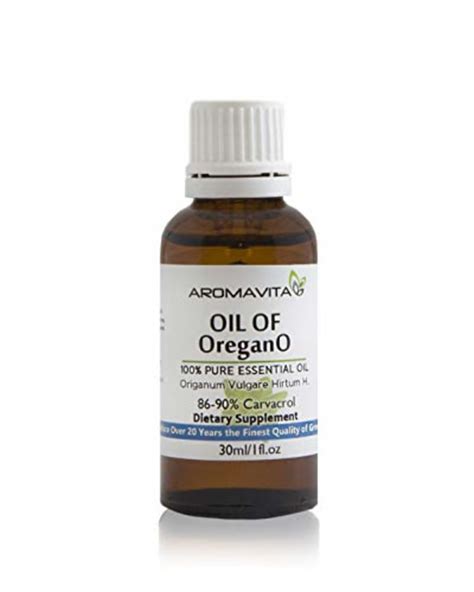Strep throat is a common but potentially serious infection that requires prompt attention. Recognizing its symptoms early and understanding the available treatment options can significantly impact recovery time and overall well-being. This guide delves into the various medications used to treat strep throat, including commonly prescribed antibiotics, dosage guidelines, and over-the-counter options for symptom relief. We also explore natural remedies, their effectiveness, and expert advice on preventing recurrence. Whether you’re dealing with strep throat for the first time or looking for the most effective treatment, this comprehensive guide provides everything you need to know for fast and effective relief.
Delve into this topic with nozaviral.com to gain a thorough understanding.
1. Overview of Strep Throat and Its Symptoms
Strep throat is a bacterial infection caused by *Streptococcus pyogenes*, also known as group A streptococcus. This infection primarily affects the throat and tonsils, causing inflammation and discomfort. Strep throat is highly contagious and spreads through respiratory droplets released when an infected person coughs or sneezes. It can also be contracted by touching contaminated surfaces and then the mouth or nose.
Strep throat symptoms usually develop within 2 to 5 days after exposure. These symptoms include a sudden, severe sore throat, making swallowing difficult. You may also notice red and swollen tonsils, sometimes with white patches or streaks of pus. Fever, headache, and swollen lymph nodes in the neck are also common. Unlike viral throat infections, strep throat typically doesn’t cause a cough or runny nose. In some instances, particularly in children, strep throat can lead to a rash known as scarlet fever. It’s crucial to recognize these symptoms promptly for timely diagnosis and treatment, as this reduces the risk of complications like rheumatic fever or kidney inflammation.

2. Importance of Early Diagnosis and Treatment
Prompt diagnosis and treatment of strep throat are essential for several reasons. Primarily, strep throat is a bacterial infection, unlike viral sore throats, which necessitates antibiotic treatment to eradicate the bacteria and prevent complications. Delaying treatment can lead to serious health consequences like rheumatic fever, causing damage to heart valves, and post-streptococcal glomerulonephritis, an inflammation of the kidneys.
Prompt treatment is crucial for minimizing the severity and duration of symptoms. Antibiotics administered within 48 hours of symptom onset can significantly shorten the illness, often leading to noticeable improvement within one to two days. This not only alleviates patient discomfort but also decreases the chance of spreading the infection to others.
Moreover, early diagnosis enables healthcare professionals to deliver targeted treatment plans that cater to the individual patient’s requirements, encompassing dosage recommendations and guidance on symptom management. Conversely, postponing treatment can lead to extended illness, amplified discomfort, and an elevated risk of complications.
Early detection and treatment are crucial for strep throat. Recognizing the symptoms promptly and seeking medical attention can lead to a faster recovery and prevent the infection from escalating into more serious health issues.

3. Common Antibiotics Prescribed for Strep Throat
Antibiotics are the foundation of strep throat treatment, specifically targeting the _Streptococcus pyogenes_ bacteria that cause the infection. Penicillin and amoxicillin are the most commonly prescribed antibiotics for strep throat. Both are highly effective and generally well-tolerated by patients. Penicillin, typically administered orally or through injection, has been the standard treatment for decades due to its effectiveness and affordability. Amoxicillin, a similar antibiotic, is often preferred for children because it’s available in a liquid form with a more palatable taste.
Individuals allergic to penicillin may be prescribed alternative antibiotics like azithromycin, clarithromycin, or cephalexin. These medications belong to distinct classes of antibiotics and provide comparable effectiveness in eliminating the bacteria.
The appropriate antibiotic and treatment duration are tailored to each patient, considering factors such as age, medical history, and the severity of the infection. A standard course of antibiotics often lasts 10 days, aiming for complete bacterial eradication and reducing the risk of complications. It’s crucial to adhere to the prescribed dosage and complete the entire course as directed to prevent antibiotic resistance and promote a full recovery.
Following your healthcare provider’s instructions carefully is crucial for achieving the best possible outcome and avoiding complications.

4. Dosage Guidelines for Strep Throat Medications
Proper dosage of strep throat medications is crucial for complete infection eradication and to prevent potential complications. For adults, penicillin is typically prescribed at 250 mg four times daily or 500 mg twice daily for 10 days. Amoxicillin is commonly dosed at 500 mg twice daily or 250 mg three times daily, also for a 10-day course. In children, dosage is usually determined by weight, with a standard prescription being 25 to 50 mg per kilogram of body weight per day, divided into two or three doses.
If you’re prescribed azithromycin, the typical regimen involves a single 500 mg dose on the first day, followed by 250 mg daily for the next four days. It’s crucial to complete the entire course of any antibiotic, even if you feel better before finishing. This helps prevent the infection from returning and lowers the risk of antibiotic resistance. Remember to always follow the specific instructions provided by your doctor.
5. Over-the-Counter Medications for Symptom Relief
Although antibiotics target the bacterial origin of strep throat, over-the-counter (OTC) medications provide valuable support in mitigating the infection’s symptoms. These medications can effectively reduce pain, fever, and overall discomfort, thereby making the recovery process smoother and more bearable.
Over-the-counter pain relievers like acetaminophen (Tylenol) or ibuprofen (Advil, Motrin) are frequently suggested for easing sore throats and reducing fever. These medications effectively address the aches and pains commonly associated with strep throat. It’s essential to adhere to the dosage instructions on the packaging or as directed by a healthcare professional to minimize the risk of any potential side effects.
Throat lozenges or sprays containing mild anesthetics such as benzocaine can temporarily relieve throat pain and irritation. Gargling with warm salt water can also soothe the throat and reduce swelling.
Strep throat typically doesn’t require over-the-counter decongestants or antihistamines. These medications are generally only needed if there are accompanying symptoms like congestion or a runny nose, which are more commonly associated with viral infections.
These over-the-counter (OTC) options can help alleviate symptoms, but they do not address the root cause of the infection. Therefore, they should be used in conjunction with prescribed antibiotics for comprehensive treatment.
6. Potential Side Effects of Strep Throat Medications
Strep throat medications, especially antibiotics, are generally safe when used as directed. However, some individuals may experience side effects. Common antibiotics, such as penicillin and amoxicillin, can sometimes cause mild gastrointestinal issues like nausea, vomiting, diarrhea, or abdominal pain. These side effects usually subside quickly and can often be reduced by taking the medication with food.
For those allergic to penicillin, alternative antibiotics like azithromycin or cephalexin may be used, but these too can cause side effects. Azithromycin, for example, may lead to stomach upset, headache, or, in rare cases, more serious issues like heart rhythm abnormalities. Cephalexin can cause similar gastrointestinal symptoms and, in some cases, skin rashes or itching.
It’s crucial to inform your healthcare provider of any known allergies or previous reactions to antibiotics before starting treatment. If severe side effects like difficulty breathing, severe rash, or swelling occur, immediate medical attention is necessary. Adherence to the prescribed dosage and course duration helps mitigate these risks while ensuring effective treatment of the infection.
7. Natural Remedies and Their Effectiveness
Natural remedies can be used alongside medical treatments for strep throat, offering extra symptom relief and supporting recovery. One well-known remedy is gargling with warm salt water, which can soothe throat irritation and reduce inflammation. The salt helps to remove excess fluid from the throat tissues, providing temporary pain relief.
Honey, renowned for its antimicrobial properties, offers soothing relief for sore throats and coughs. When mixed with warm tea or taken directly, honey’s viscous texture creates a protective coating on the throat, helping to alleviate discomfort.
Herbal teas, like chamomile or ginger tea, offer numerous benefits. Chamomile, known for its anti-inflammatory and soothing properties, can ease discomfort. Ginger, on the other hand, may reduce throat inflammation and strengthen the immune system.
Steam inhalation soothes a dry throat and congestion by hydrating the airways. The benefits can be amplified by adding essential oils like eucalyptus or peppermint, but proceed cautiously to prevent irritation.
These remedies offer symptom relief but cannot substitute for antibiotics. They should be used alongside prescribed treatments for comprehensive care.
8. Preventing Strep Throat Recurrence
To prevent strep throat from returning, there are several proactive steps you can take to minimize the risk of reinfection and keep your throat healthy. One of the most effective ways is to practice good hygiene. Washing your hands frequently with soap and water, especially before eating or touching your face, can help prevent the spread of bacteria. It’s also crucial to avoid close contact with individuals who are currently infected with strep throat.
A healthy lifestyle empowers your immune system, bolstering its ability to combat infections. A balanced diet brimming with vitamins and minerals, coupled with sufficient hydration and regular exercise, fosters overall well-being and resilience.
Always take prescribed antibiotics exactly as directed and finish the entire course, even if you feel better before completing it. This is crucial to completely eliminate the bacteria and lower the risk of your infection returning.
To minimize the risk of cross-contamination, refrain from sharing personal items such as utensils, towels, or pillows. Regular disinfection of common surfaces and avoiding touching your face can also help reduce the chances of reinfection. By adhering to these guidelines, you can significantly lower the likelihood of strep throat recurring.
9. Expert Recommendations for Choosing the Right Treatment
Choosing the right treatment for strep throat involves a combination of medical advice and personalized care. Experts recommend starting with a healthcare provider’s evaluation to confirm a strep throat diagnosis through a rapid test or throat culture. This ensures that the symptoms are caused by Streptococcus pyogenes and not another pathogen.
For antibiotic treatment, penicillin and amoxicillin are typically preferred due to their effectiveness and safety profile. However, if you have allergies or intolerances to these medications, alternatives like azithromycin or cephalexin can be considered. It’s essential to adhere to the prescribed dosage and complete the full course to effectively eradicate the bacteria and prevent complications.
In addition to antibiotics, incorporating supportive care such as over-the-counter pain relievers and natural remedies can help manage symptoms and provide comfort. Experts advise discussing any natural remedies with your healthcare provider to ensure they do not interfere with prescribed treatments.
For recurring cases or severe symptoms, follow-up with a specialist may be ne
Effective management of strep throat involves timely diagnosis, appropriate antibiotic treatment, and supportive care for symptom relief. By understanding the common medications, potential side effects, and natural remedies, as well as taking preventive measures, you can ensure a swift recovery and minimize the risk of recurrence. Always consult with healthcare professionals to tailor treatment to your specific needs and circumstances.
nozaviral.com

